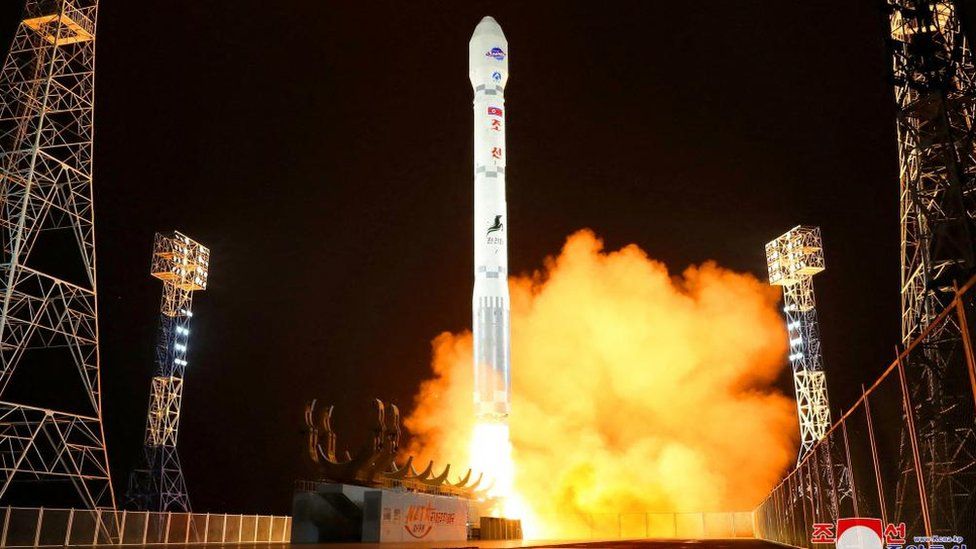-

-
-
Loading

Loading

South Korea has suspended parts of its 2018 agreement with North Korea that aimed to lower military tensions. The move comes after Pyongyang claimed to have successfully launched a spy satellite into space. Prime Minister Han Duck-soo stated that the launch posed a threat to South Korea's security. As a result, Seoul has decided to resume surveillance flights along its border with North Korea, which goes against the no-fly zone established under the military deal. Analysts have suggested that these developments could further escalate tensions. On Tuesday, Pyongyang fired a rocket believed to contain its Malligyong-1 spy satellite and celebrated the launch as a success. However, both the United States and South Korea have stated that they are unable to verify the launch's success or the functionality of the spy satellite, but have strongly condemned it. The US National Security Council expressed concerns that the move could destabilize the security situation in the region and beyond. The development of a functioning spy satellite is a significant part of North Korea's five-year military plan, as outlined by its leader, Kim Jong Un, in January 2021. The technology would enable Pyongyang to monitor the movements of US and South Korean troops and weapons on the Korean Peninsula, enhancing their ability to detect incoming threats and improve the precision of their nuclear attacks. North Korea's space agency, the National Aerospace Technology Administration, stated that the launch aimed to bolster the country's self-defense capabilities in response to "dangerous military moves" by its enemies. Pyongyang also announced plans to launch several more spy satellites in quick succession. Some analysts doubt the effectiveness of the satellite, questioning its advanced capabilities. However, they acknowledge that even a low-resolution satellite could provide valuable information to enhance the effectiveness of an attack. Ankit Panda, a nuclear policy expert, believes that while the spy satellite may enhance North Korea's armed forces, it could also have a stabilizing effect on the Korean Peninsula. He suggests it could enable Pyongyang to verify whether the US and South Korea are preparing for a major attack, potentially reducing their skittishness during crises. This is North Korea's third attempt this year to place a spy satellite into orbit after failed attempts in May and August. South Korean officials suspect that Moscow provided technical support to Pyongyang, enabling the country to overcome its previous hurdles. During a meeting between Kim Jong Un and Vladimir Putin in September, Putin appeared to suggest that he would assist North Korea in satellite development. The US and South Korea suspect that North Korea is trading arms with Russia for its expertise. However, experts argue that there is no evidence to support this claim and that North Korea has been conducting its own research and development in space systems. The Comprehensive Military Agreement signed by Kim Jong Un and then South Korean President Moon Jae-in in 2018 aimed to de-escalate tensions and prevent conflicts. It imposed limitations on military movements near the border, removed guard posts, banned live-fire drills, and established a no-fly zone. However, South Korea has recently argued that the agreement leaves it vulnerable to attacks due to the prohibition on flying surveillance aircraft and reconnaissance drones along the border. In response to the recent satellite launch, South Korea's National Security Council, defense chiefs, and cabinet have agreed to restart surveillance operations along the border with the president's support. The increased surveillance will enable South Korea to monitor North Korean outposts and long-range artillery previously concealed by mountain slopes. Currently, Seoul relies on US spy satellites, but it plans to launch its first domestically-built satellite into space in November. While some analysts warn that the suspension of the military pact could escalate tensions and increase the likelihood of cross-border skirmishes, others argue that tensions have already resumed with North Korea's regular missile launches since 2022. They believe that South Korea had to respond sooner or later.